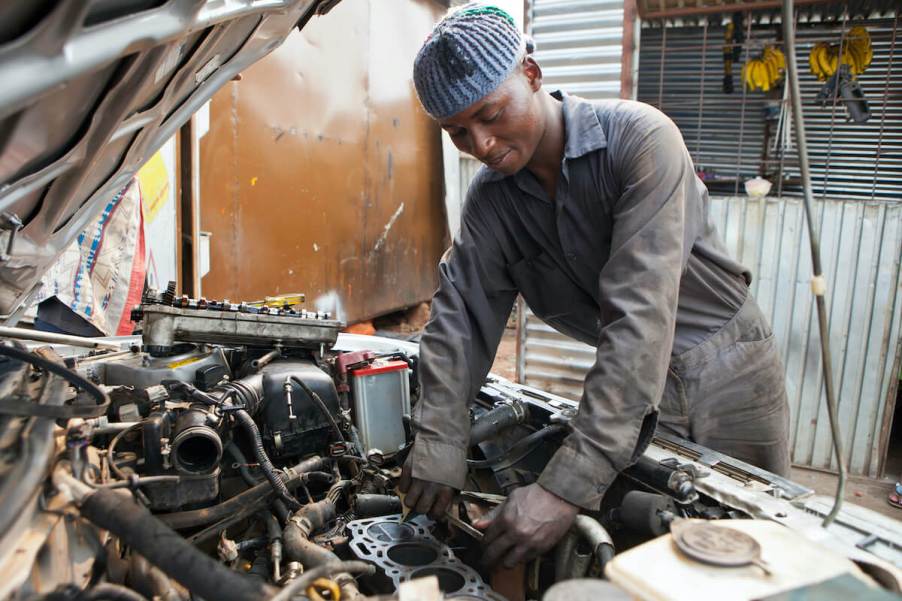
Do Modern Cars Still Need a Tune-up?
In the past, it wasn’t uncommon for a car to need a “tune-up” every so often. But cars have come a long way in the past 20 years, so requesting a tune-up may sound ludicrous to your local mechanic. Here is why your modern car most likely does not need a tune-up.
Old cars needed tune-ups to stay in good shape

Back in the day, older cars used carburetors and other parts that occasionally needed to be adjusted to get the car running properly. HowStuffWorks says, “Traditional tuneups on older cars help them to keep in good shape and enable maximum gas mileage. Getting your car tuned up means making necessary adjustments to certain engine components. “
Some of those adjustments included:
- Cleaning the throttle body
- Cleaning or replacing the carburetor
- Replacing the cap, rotor, and spark plug wires
- Replacing the timing belt
- Inspecting and adjusting the engine timing
- Inspecting oxygen sensors
Remember that these inspections and part replacements are typically meant for older cars. Modern cars, on the other hand, mostly only need fluid and simple part replacements.
Thanks to modern technology, every new car in the market today utilizes more advanced parts and computers to regulate the engine’s timing and air intake. These parts are developed with longevity in mind, so they don’t need to be replaced regularly.
Common routine maintenance on modern cars

Since modern cars, typically cars built in the past decade, don’t need the old-school “tuneup,” they only need simple routine maintenance work done.
Some of the most common maintenance services include:
- Change engine oil
- Change transmission fluid
- Replace coolant
- Inspect the drive belt when necessary
- Inspect hoses and replace them when necessary
- Replace the cabin air filter
As we can see, the routine maintenance needed for modern cars is much simpler than the tune-ups that older cars needed in the past. Fortunately, many dealership services and independent shops have a package deal for these maintenance services, which can come at a discounted rate for customers.
How do you know if your older car needs a tune-up?
If you have an older car that was built before the turn of the century or older, there are a few signs it could need a tune-up.
- Decreased gas mileage: If you keep track of your car’s gas mileage and notice that you need to fill the tank more often, it could need a tune-up. This means the fuel or air filter could need to be replaced, or the timing needs to be adjusted.
- Weird noises: If you hear any weird noises like thumping, screeching, or squealing, then your car could need a tune-up.
- The engine doesn’t start: If your car’s engine doesn’t start, it could be something simple like a dead battery or starter, but it could be something worse. Either way, a trip to a mechanic’s shop could be in order.
Fortunately, a tune-up should only take one to four hours, depending on how busy the shop is. So, if you have an older car, you may need to spend the time and money to have it checked out. But if you have a modern car, these visits to the auto shop may not be necessary.



